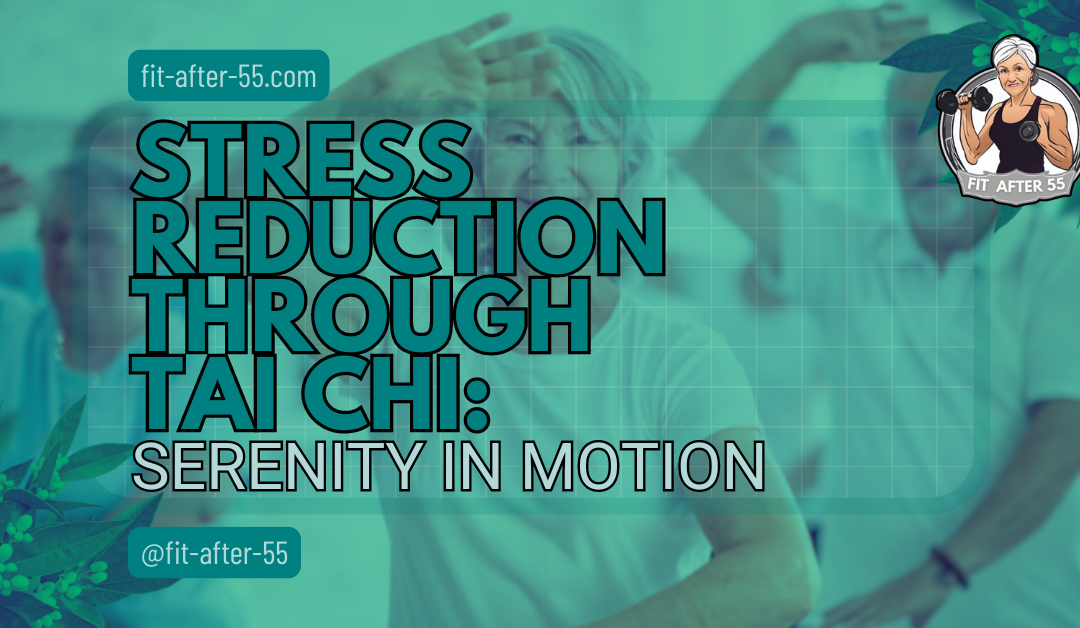Stress reduction through Tai Chi offers a powerful and calming solution for today’s fast-paced lifestyle. This ancient Chinese practice combines slow, flowing movements with deep breathing, creating a peaceful yet effective way to manage stress. Whether you’re dealing with daily anxiety or seeking a long-term method for inner peace, Tai Chi’s gentle approach can bring balance to your mind and body. By exploring its meditative movements, you’ll uncover physical relaxation and emotional calm, making it a holistic tool for mental well-being. Ready to dive into this transformative practice? Let’s explore how Tai Chi can help you reclaim your inner tranquility.
Stress Reduction Through Tai Chi: Embrace Serenity in Motion
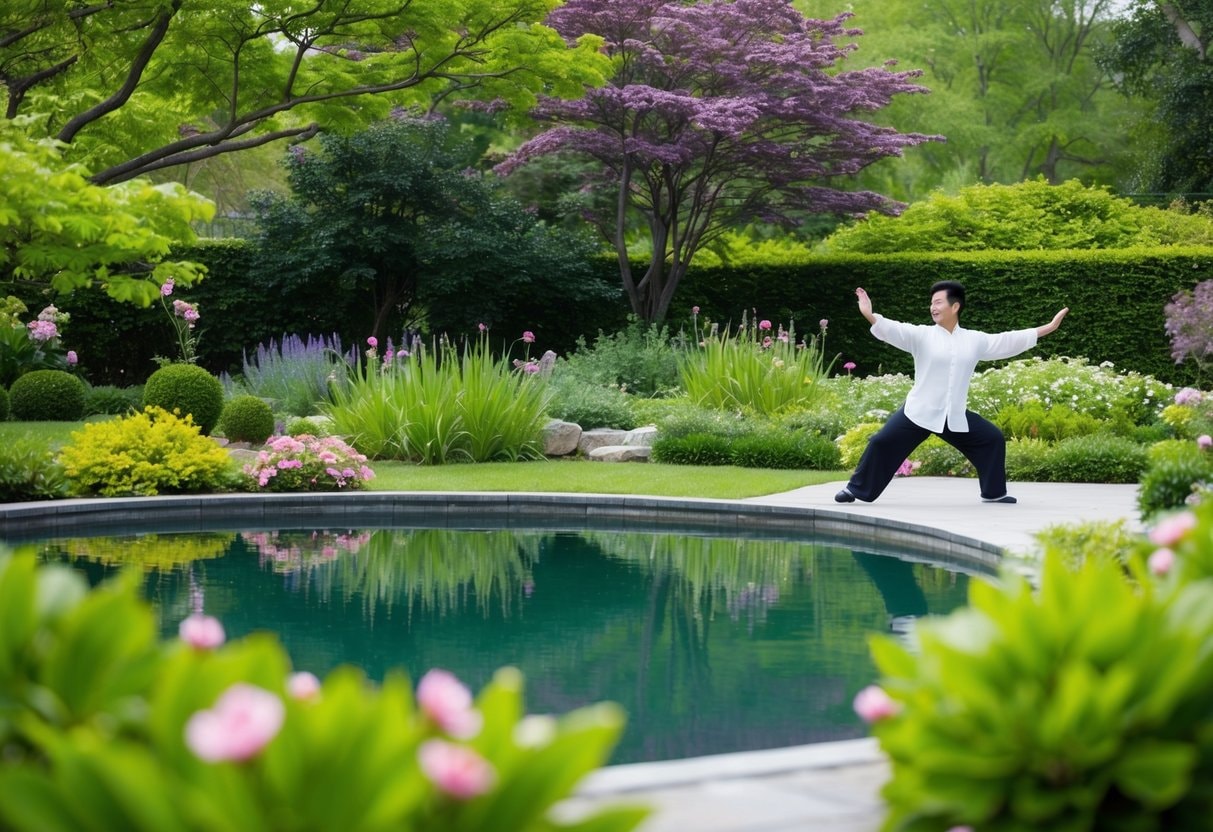
Are you feeling stressed? You’re not alone. In today’s fast-paced world, many people seek ways to find calm and peace. Tai Chi is what you need. This ancient Chinese practice combines slow, gentle movements with deep breathing and meditation. It’s like a moving meditation that can help you relax and feel better. Tai Chi can reduce stress and promote inner peace by calming your nervous system and helping you focus on the present moment.
Practicing Tai Chi teaches you to move your body in smooth, flowing ways. This can help you feel more balanced and centered. It’s a great way to take a break from the busy world and focus on yourself. You don’t need special equipment to do Tai Chi, and people of all ages and fitness levels can enjoy it. By grounding your inner self through Tai Chi, you can find a sense of calm that stays with you even after you finish practicing. It’s a skill that can help you deal with stress daily.
Key Takeaways
- Tai Chi combines gentle movements, breathing, and meditation to reduce stress.
- Regular practice can improve your physical and mental well-being.
- You can easily add Tai Chi to your daily routine for stress relief.

The Essence of Tai Chi
Tai Chi is a gentle practice that combines flowing movements with deep breathing and mental focus. It offers a path to inner calm and improved well-being.
History and Origin of Tai Chi
Tai Chi has roots in ancient Chinese martial arts and philosophy. It began over 700 years ago during the Song Dynasty. A Taoist monk named Zhang Sanfeng is often credited with creating Tai Chi. The practice spread slowly at first, mainly within families. Over time, it evolved into different styles.
Each style has its unique features, but all share core principles. Today, Tai Chi is practiced worldwide for health and relaxation. It’s no longer just for self-defense. Many people use it to reduce stress and improve balance.
Tai Chi as Meditation in Motion
Tai Chi is often called “meditation in motion.” This name fits because you focus your mind while moving your body. You perform slow, graceful movements in a set sequence. As you practice, you pay attention to your breath and body. This helps quiet your mind and reduce stress.
The gentle movements can also improve your balance and strength. Tai Chi helps you feel more centered and calm. Many people say it gives them a sense of peace that lasts long after practice.
Understanding Qi and Tai Chi Chuan
Qi is a key concept in Tai Chi. It’s often described as life energy that flows through your body. Tai Chi Chuan, the full name of the practice, means “supreme ultimate fist” in Chinese. The goal of Tai Chi is to balance and enhance your qi. You do this through smooth, flowing movements and deep breathing. By practicing regularly, you may feel more energized and balanced. Tai Chi also teaches you to relax and let go of tension. This can help reduce stress and improve your overall health.
Health Benefits of Tai Chi
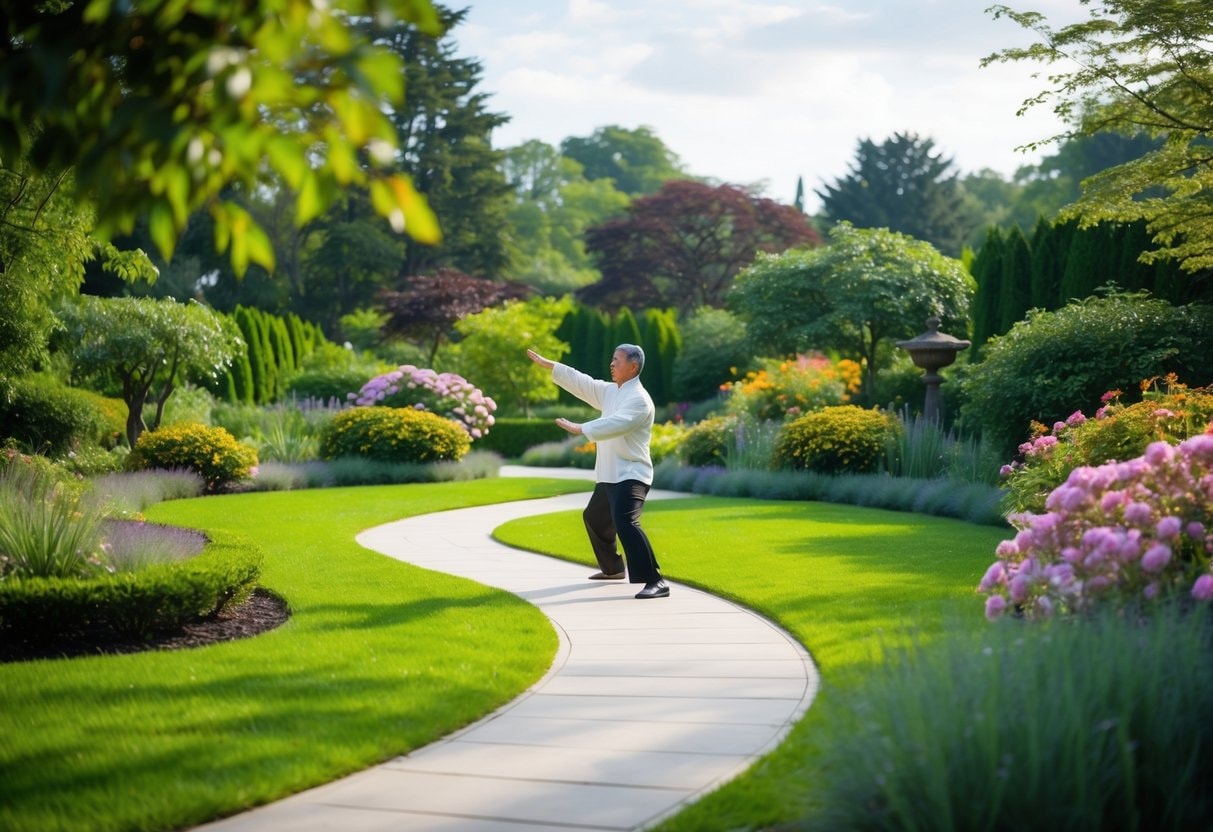
Stress Reduction Through Tai Chi offers a wide range of benefits for your body and mind. This ancient practice can improve physical health, emotional well-being, and cognitive function through gentle movements and mindful breathing.
Physical Health Enhancements
Tai chi can boost your flexibility, strength, and balance. You’ll notice improved coordination and posture as you practice the slow, flowing movements. Regular tai chi sessions may help you:
- Lower blood pressure.
- Reduce chronic pain.
- Enhance heart health.
- Improve bone density.
Tai chi is especially helpful for older adults. It can reduce the risk of falls by improving your stability and body awareness. You don’t need special equipment or a high fitness level to start. Tai chi is gentle on your joints, making it suitable for people with arthritis or other physical limitations.
Mental and Emotional Well-being
Tai chi is often called “meditation in motion” for good reason. It can significantly boost your mental and emotional health. Regular practice may help you:
- Reduce stress and anxiety.
- Improve mood.
- Increase self-esteem.
- Enhance overall mental clarity.
The mindful nature of tai chi encourages you to focus on the present moment. This can help quiet your mind and reduce worrying thoughts. Studies suggest that tai chi may even help alleviate symptoms of depression. The combination of gentle exercise and meditation-like focus can powerfully affect your emotional well-being.
Improving Sleep Quality and Cognitive Function
Tai chi can have a positive impact on your sleep and brain function. Many practitioners report better sleep quality after starting tai chi. The practice may help you:
- Fall asleep faster.
- Sleep more deeply.
- Wake up feeling more refreshed.
Tai chi’s cognitive benefits are also impressive. Regular practice can enhance the following:
- Memory.
- Attention span.
- Executive function (planning and decision-making skills).
These improvements may be especially beneficial as you age. Some research suggests tai chi could help slow cognitive decline in older adults.

Did you Know?
Tai Chi can be a great addition to your mental health routine. It can help rewire your brain to handle stress better. This may improve your emotional stability.
Tai Chi Techniques and Training
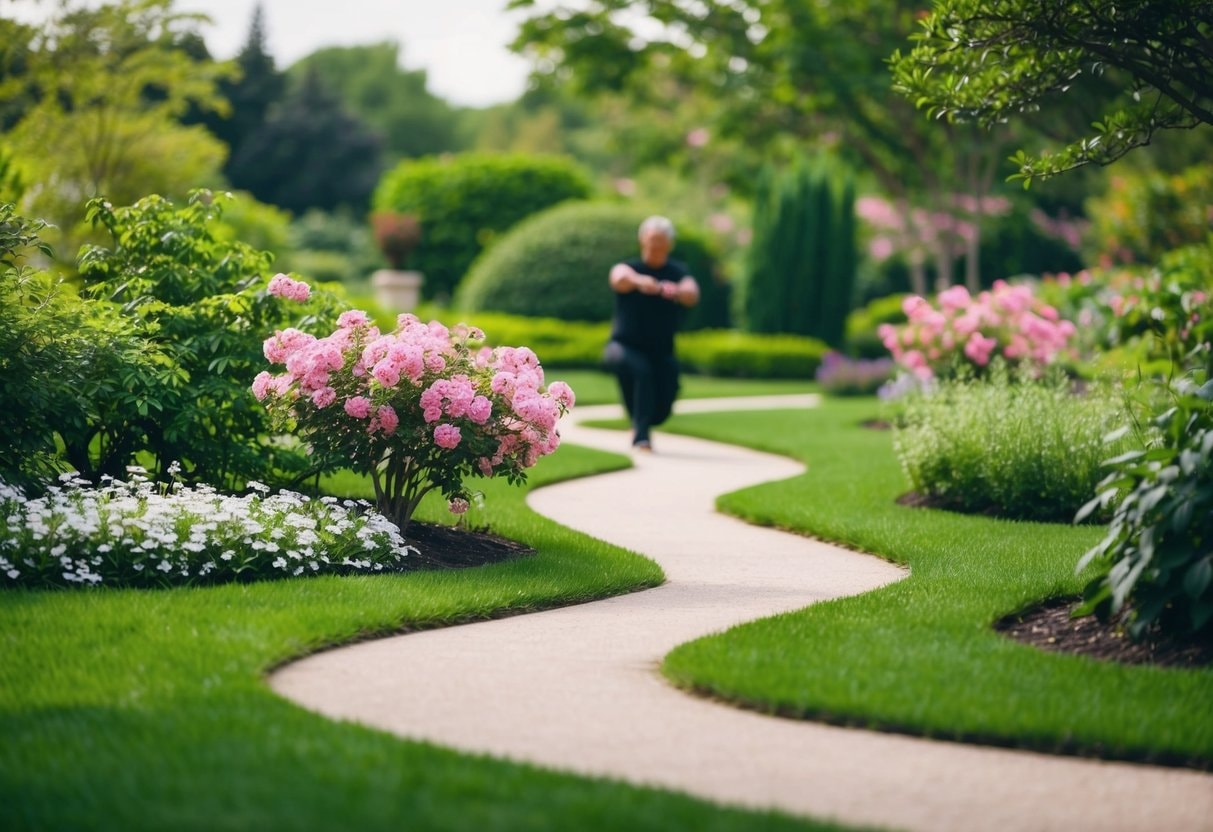
Stress reduction through Tai Chi offers powerful tools for stress relief through gentle movements and mindful practices. Tai Chi teaches you core postures, breathing methods, and ways to unite your mind and body, making it an effective practice for enhancing overall well-being.
Core Movements and Postures
Tai Chi’s flowing movements are key to its stress-busting effects. You’ll start with basic stances like “Wu Chi” – standing tall with feet shoulder-width apart. This helps improve your posture and balance. Next, you’ll learn the “Tai Chi Walk.” This involves shifting your weight smoothly from one leg to the other. It teaches you to move with grace and stability.
As you progress, you’ll practice arm movements like “Wave Hands Like Clouds.” This gentle swaying motion helps release tension in your upper body. Remember, Tai Chi is not about speed or force. Focus on slow, controlled movements. This mindful approach helps calm your mind and relax your muscles.
Breathing Techniques for Inner Calm
Proper breathing is crucial in Tai Chi. You’ll learn to take deep, slow breaths from your diaphragm. This type of breathing helps activate your body’s relaxation response. Try this simple technique:
- Inhale slowly through your nose for four counts.
- Hold your breath for four counts.
- Exhale slowly through your mouth for six counts.
Practice this breathing pattern while doing Tai Chi moves. It helps you stay focused and enhances the calming effects of the exercise. You might also learn the “Taoist Reverse Breathing” technique. This involves gently pulling your belly in and relaxing it as you inhale.
Integrating Mind-Body Connection
Tai Chi is more than just physical exercise. It’s about creating a strong link between your mind and body. This connection is key to reducing stress and finding inner peace. As you practice, focus on how each movement feels. Notice the shift of your weight, the stretch in your muscles, and the flow of your breath. This mindful awareness helps quiet your thoughts and brings you into the present moment.
Try the “Inner Smile” meditation. Imagine a warm, soothing light spreading through your body as you move. This visualization can help release tension and promote a sense of well-being. Remember, the goal is to move with intention and awareness. You’ll maximize Tai Chi’s stress-relieving benefits by fully engaging your mind in the practice.
Incorporating Tai Chi into Daily Life
Adding Tai Chi to your daily routine can bring calm and balance. Regular practice helps manage stress and promotes relaxation through simple movements and breath awareness.

Dedicated Time for Regular Practice
Set aside a specific time each day for Tai Chi. Early mornings work well for many people. Start with 10-15 minutes and gradually increase to 30 minutes or more. Find a quiet spot at home or in nature where you won’t be disturbed. Create a peaceful environment with soft lighting and calming music if you like.
Wear comfortable clothes that allow easy movement. Consistent practice is key to seeing benefits. Try to practice daily at the same time to build a habit. A few minutes of Tai Chi can help center you even on busy days.
Tai Chi for Stress Management and Relaxation
Use Stress Reduction Through Tai Chi to manage stress and unwind. When you feel tense, take a Tai Chi break. Focus on your breath and slow, flowing movements to calm your mind. Practice the “Dan Tien” meditation by touching your lower belly. Breathe deeply and imagine energy gathering there, using Stress Reduction Through Tai Chi to center yourself and release tension.
This can help you feel grounded and less anxious. Try simple Tai Chi moves like “Parting the Wild Horse’s Mane” or “Cloud Hands” when you need a quick stress reliever. These gentle motions can ease tension in your body and mind.
Building Consistency and Routine
Make Tai Chi a natural part of your day. Start your morning with a few minutes of gentle movements to energize yourself. Take short Tai Chi breaks during work to refresh your mind. Use reminders on your phone or sticky notes to prompt you to practice. Join a local Tai Chi group or find an online community for motivation and support.
Track your progress in a journal. Note how you feel before and after practice. This can help you see the positive changes and stay motivated. Remember, small, regular sessions are better than occasional long ones.
Beyond the Basics
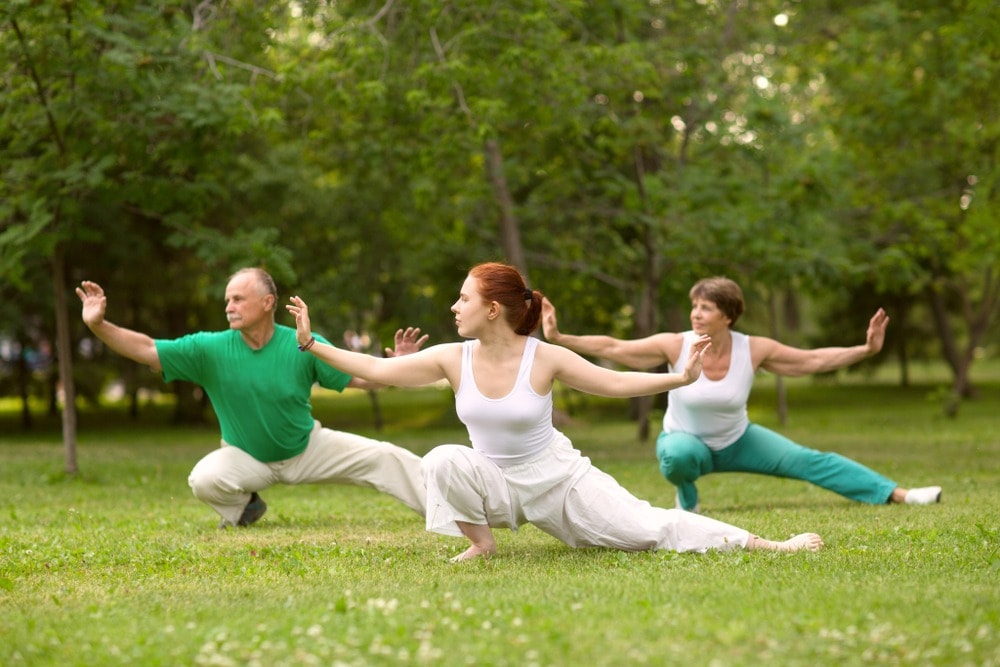
Stress Reduction Through Tai Chi offers more than just relaxation. It has advanced forms, self-defense applications, and a rich community aspect. These elements can deepen your practice and bring new dimensions to your Tai Chi journey.
Advanced Techniques and Forms
You’ll discover more complex movements and forms as you progress in Tai Chi. The Yang-style long form is a popular advanced sequence. It includes 108 moves and can take up to 20 minutes to complete. You might also explore weapons forms. These involve graceful movements with props like fans, swords, or staffs.
Don’t worry – you won’t be fighting! These forms enhance balance and coordination. Qigong exercises often complement advanced Tai Chi. They focus on breath work and energy flow. Try the “Eight Pieces of Brocade” or “Five Animal Frolics” to expand your practice.
Self-Defense and Martial Aspects
Tai Chi’s roots lie in martial arts. As you advance, you can explore its self-defense applications. This doesn’t mean you’ll become a fighter. Instead, you’ll learn how Tai Chi movements can be used for protection. Pushing hands is a key practice. It’s a two-person exercise where you learn to sense and redirect an opponent’s energy.
This builds sensitivity and teaches you to stay relaxed under pressure. You’ll also discover how seemingly gentle moves can be powerful. A simple “ward off” can deflect an attack. A “rollback” can throw an opponent off balance.
The Role of Community and Learning
Tai Chi is often practiced in groups. This creates a supportive community that can enhance your learning. Group classes offer chances to make friends and share experiences. You might find a Tai Chi “family” – a group that practices together regularly. This can provide motivation and accountability. It’s also fun!
Many practitioners attend workshops or retreats. These events let you learn from master teachers. You can deepen your practice and connect with the wider Tai Chi community. Online forums and social media groups are great for sharing tips and asking questions. They keep you connected to the Tai Chi world, even when you can’t attend in-person classes.
Coping with Life Challenges
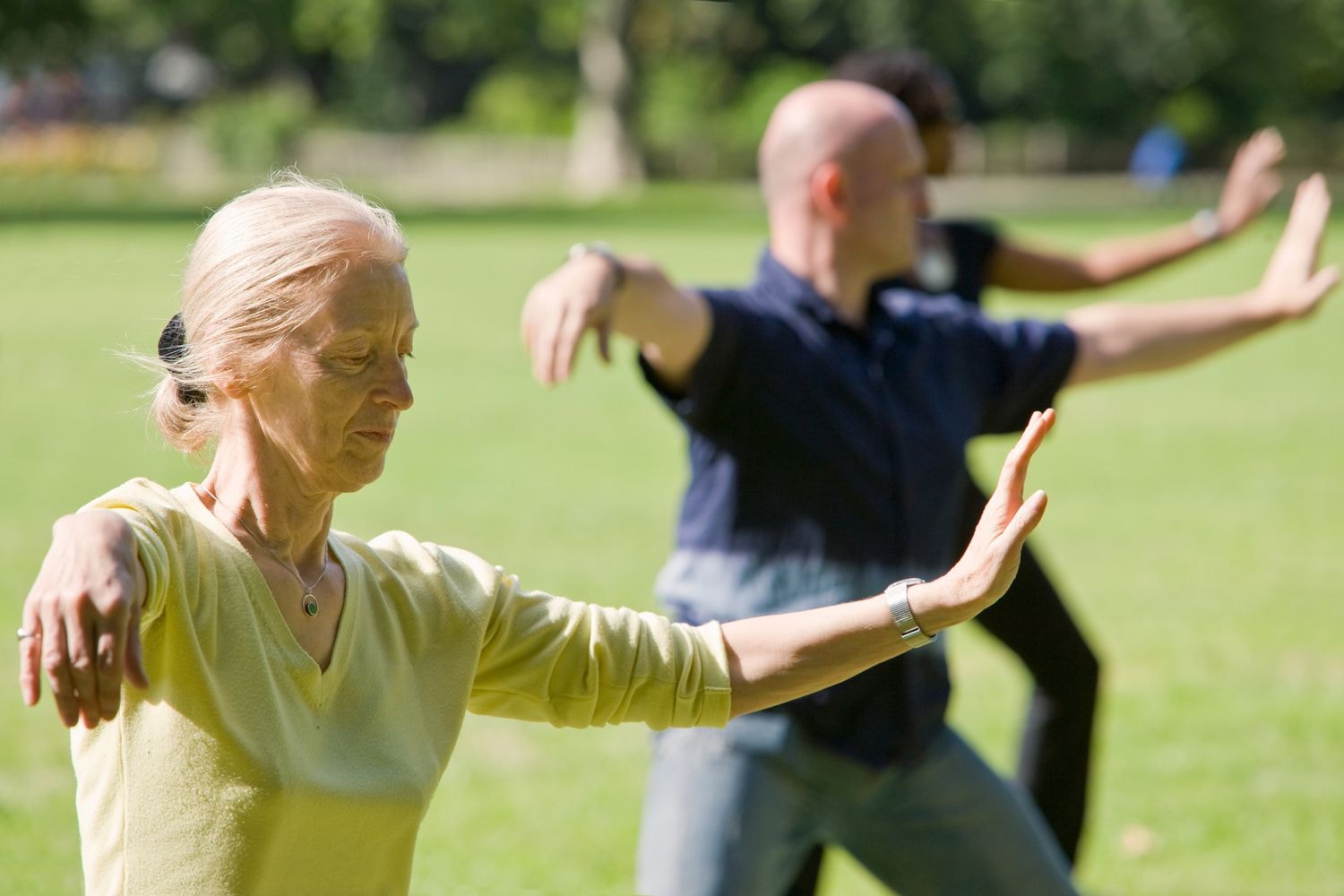
Tai Chi offers powerful tools for dealing with life’s ups and downs. It helps you build inner strength and find balance when times get tough.
Tai Chi for Emotional Resilience and Regulation
Tai Chi can boost your emotional well-being. As you practice, you learn to stay calm under pressure. The slow, flowing movements help you relax and let go of stress. You’ll get better at staying grounded when upset and handling frustration.
You’ll also improve at keeping your cool in tense situations. Tai Chi teaches you to tune into your body and breathe deeply. This helps you notice and manage your feelings better. Over time, you’ll find it easier to stay balanced when life throws you curveballs.
Managing Chronic Stress and Depression
If you deal with ongoing stress or depression, Tai Chi can be a big help. The gentle exercise and focus on breathing can lift your mood and energy. Tai Chi may help you sleep better, feel more relaxed, and have a brighter outlook. Studies show Tai Chi can ease symptoms of depression.
It gets you moving and connects you with others in class. This combo of physical activity and social support is great for mental health. Tai Chi’s slow pace helps you slow down mentally, too. This can give you a break from stressful thoughts and worries.
Supporting Recovery from PTSD
For those coping with PTSD, Tai Chi offers a path to healing. Its mix of gentle movement and mindfulness can help you feel safe in your body again. Tai Chi may help you feel more grounded and present, reduce anxiety and flashbacks, and improve sleep quality. Focusing on breathing and slow movements can calm your nervous system.
This may ease some PTSD symptoms over time. Tai Chi also builds body awareness. This can help you notice and manage stress reactions better. You may find it easier to stay calm in triggering situations with practice.
Here’s an additional video about Tai Chi.
By: Taiflow
Tai Chi for Tranquility: Unlocking Stress Reduction and Inner Peace
Incorporating Tai Chi into your daily routine offers a practical and effective way to manage stress while improving overall well-being. Its gentle, flowing movements and mindful breathing promote relaxation, balance, and emotional calm. Practicing Tai Chi regularly can enhance physical health, such as flexibility, balance, and mental clarity, making it an accessible tool for stress relief. Whether you’re new to Tai Chi or have been practicing for years, this ancient practice can help you find serenity amidst the chaos of daily life.
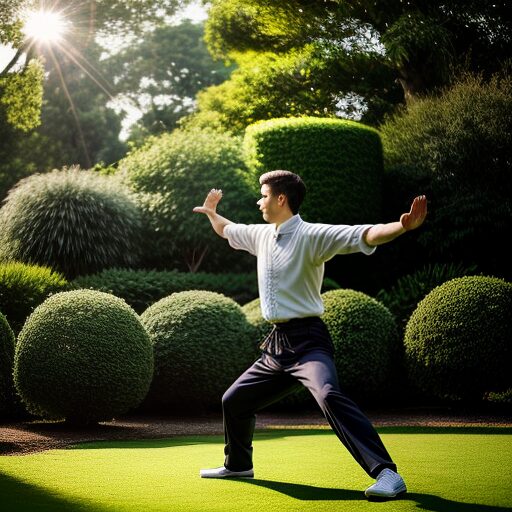
Integrating Tai Chi into your lifestyle becomes more than just exercise – it’s a mindful journey toward inner peace and emotional resilience. The benefits extend beyond the physical, offering a mental escape from stress and anxiety. With consistency, Tai Chi teaches you how to stay grounded, focused, and calm, allowing you to manage the challenges of everyday life better. This blend of meditation in motion makes Tai Chi a timeless practice for those seeking balance, relaxation, and well-being.
Frequently Asked Questions
How Can Practicing Tai Chi Contribute to Stress Management?
Tai Chi can help you manage stress in several ways. It teaches you to focus on slow, gentle movements and deep breathing. This can calm your mind and relax your body. As you practice, you may feel less tense and more at peace. Tai Chi also helps you stay in the present moment. This can take your mind off worries and reduce stress.
What Emotional Changes Might One Experience With Regular Tai Chi Practice?
You might notice positive changes in your emotions with Tai Chi. Many people feel less anxious and depressed after regular practice. You may also feel happier and more balanced. Tai Chi can boost your mood and help you feel more positive. It gives you a chance to slow down and connect with yourself.
What Are the Potential Impacts of Daily Tai Chi on Overall Well-being?
Daily Tai Chi can have many good effects on your health. It may improve your balance, flexibility, and strength. You might also have more energy and stamina. Some people find that Tai Chi helps them sleep better. It can also boost your immune system and lower blood pressure.
Revitalize Your Fitness Journey Beyond 55!
Hello, fitness lovers! Discover the secrets to vitality and well-being with Fit After 55! Whether you’re an experienced athlete or just starting out, our platform serves as your comprehensive resource for holistic health. From establishing realistic goals to celebrating achievements, we’re here to assist you in reimagining what it means to thrive after 55. Visit our website and join our Facebook page today to unleash your full potential with Fit After 55!

